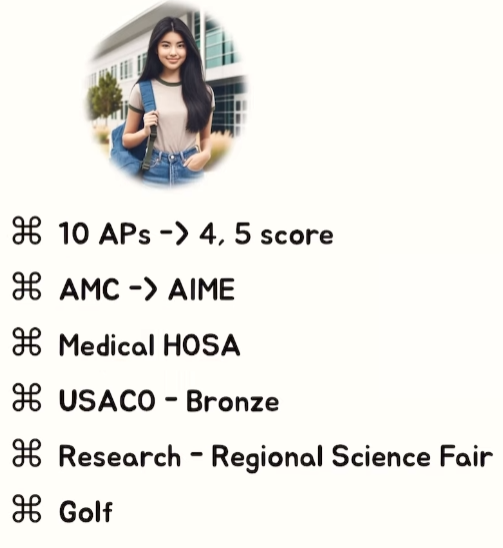
A ONE Institute
Nov 6, 2024
Today, I’ll be sharing a post about a principle you must remember for college admissions.
When engaging in various extracurricular activities (ECs) for college admissions, here’s one principle to keep in mind.
But first, let me start with an introduction.

The renowned economist Nassim Nicholas Taleb’s concepts of the “Black Swan” and “Gray Rhino” are often cited in economics.
A “Black Swan” refers to unpredictable, unforeseen risks, while a “Gray Rhino” refers to predictable risks.
For example, high inflation leading to stagflation in the U.S. economy is predictable—this is a “Gray Rhino” event.
On the other hand, the COVID-19 pandemic in 2020 was an unpredictable risk, a “Black Swan.”
Taleb became more famous when, 5-6 years before COVID, he predicted that a Black Swan event could arise globally, most likely in the form of a pandemic.
There’s a story he shares in his book Skin in the Game that might be helpful here.
Imagine you have to choose between two surgeons:
One is clearly likable and approachable.
The other is less outwardly appealing.
When picturing them, you might imagine them as shown in the above photos, and you have to pick between the two. Whom would you choose?

Most people would likely choose the surgeon on the left.
However, Taleb says he would choose the surgeon on the right without hesitation.
His reasoning is that because of appearance-based stereotypes, the second surgeon would have had to work extra hard to overcome such biases, thus likely putting in more effort and, therefore, potentially being more skilled than the first surgeon.
To overcome the many stereotypes that exist in the world, it’s essential to demonstrate a level of unpredictability.
When applying to schools, ethnic and regional stereotypes are almost inevitable.
For example, to break stereotypes:

Asians should show they’re not only studious but also socially adept and active.
Americans could show dedication to math beyond just being active.
Jewish applicants could highlight being religiously open-minded and less calculative.
It’s crucial to convey traits that counter such biases.
Admissions officers review thousands of applications, and without a surprising, appealing quality, an application may easily be overlooked.
Hence, it’s important to incorporate activities that defy stereotypes.
Here’s a real-life example:

An Asian female student achieved 4s and 5s in 10 AP exams, advanced in AMC and AIME, prepared for HOSA competitions, earned a Bronze in USACO (a computer science olympiad), participated in science fairs in biomedical research, and was active in golf.
This student is diligent and focused on her studies.
One potential downside was that most of her activities were solo-oriented.
One way she introduced a surprising element was through “marching band.”
Marching band demands a lot of after-school time and is challenging to manage alongside other commitments, and it doesn’t offer awards or certificates, so it’s often seen as inconvenient.
However, colleges value this activity because it shows that she values harmony with others.
Many people ask whether they should join marching band.
It’s not universally beneficial, but for a student whose activities are primarily solo-based, it could be a plus.
On the other hand, for students already engaged in team sports or group activities, marching band may be less necessary.
This female student was accepted to Johns Hopkins University.

Next, here’s an example of a male student.
He took 11 AP classes, scoring 4s and 5s in each, which demonstrates his academic strength.
He won first place in the regional speech and debate league, was a team leader in DECA, and participated in the Wharton Entrepreneurship Program, indicating his interest in business.
He was also active in school and regional cello performances and served as a student representative.
Looking at his activities, one might assume his interest lies in business or politics.
However, his surprise activity was research in astronomy.
He presented his research at a science fair, which may seem unrelated to his intended major, yet it adds an element of unpredictability.
Many assume that students aiming to study business only need DECA or entrepreneurial activities, but UPenn, in line with Benjamin Franklin’s ideals, appreciates students who are curious and dedicated across multiple disciplines.
This male student was accepted to UPenn.
If most of your activities are STEM-related, adding something like a writing competition or an essay contest related to social studies, or National History Day (NHD), can highlight an element of surprise.
Conversely, if a student’s activities are mostly non-STEM, participating in science research or taking a challenging physics class can help break stereotypes.
If, after listing your activities, they create a cohesive story, that’s great.
But also consider what activities could add an unexpected twist.
If you’d like to know more about activities that can help break stereotypes, reach out to us at A-One Institute.
Thank you.
